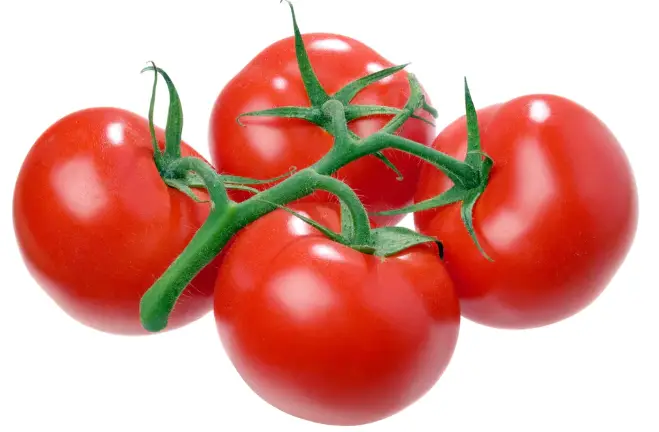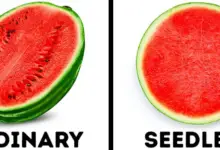Do Tomatoes Cause Gas And Bloating?

Tomatoes are good for you and have lots of health benefits. But, some people get an upset stomach, like gas and bloating, when they eat them. Why does this happen? Could tomatoes be the reason for this bloating? Let’s explore this.
Table of Contents
- Reasons Why Eating Tomatoes Might Cause Gas and Bloating
- 1. Fiber Content
- 2. The Natural Sugar Fructose
- 3. Polyols
- 4. Acid Levels
- How to Enjoy Tomatoes Without the Tummy Trouble
- 1. Try a Low FODMAP Plan
- 2. Cooking Them Helps
- 3. Eat Smaller Amounts
- 4. Mix in Probiotics
- 5. Walk After Eating
- 6. Enzyme Supplements Can Help
- 7. Drink Water
- How to Handle Gas and Bloating Caused by Tomatoes
- 1. Rub Your Belly
- 2. Do Some Yoga
- 3. Apply Warmth
- 4. Try Some Herbal Tea
- 5. Activated Charcoal Works
- 6. Simethicone Can Help, Too
- 7. Keep Moving
- 8. Wear Loose Clothes
- 9. Cut Down on Foods that Make Gas
- How to Manage Sensitivity to Tomatoes
- 1. Eat Cooked Tomatoes
- 2. Check Out Enzyme Supplements
- 3. Balance Your Gut Bacteria
- 4. Skip the Skins
- 5. Watch Your FODMAPs
- 6. Anti-Gas Medicine
- 7. Find Other Trigger Foods
- 8. Reduce Stress
- The Final Thoughts
- 9. Cut Down on Foods that Make Gas
- How to Manage Sensitivity to Tomatoes
- 1. Eat Cooked Tomatoes
- 2. Check Out Enzyme Supplements
- 3. Balance Your Gut Bacteria
- 4. Skip the Skins
- 5. Watch Your FODMAPs
- 6. Anti-Gas Medicine
- 7. Find Other Trigger Foods
- 8. Reduce Stress
- The Final Thoughts
Reasons Why Eating Tomatoes Might Cause Gas and Bloating
There are some things in tomatoes that could make some people feel bloated or gassy:
1. Fiber Content
Tomatoes have fiber, especially the kind that doesn’t dissolve, which is found in the tomato skin. Fiber is good for your stomach but eating too much too fast can cause gas and bloating as your body gets used to it.
2. The Natural Sugar Fructose
Tasty tomatoes have a sugar called fructose. Fructose isn’t absorbed very well and can ferment in your belly, making more gas.
3. Polyols
Tomatoes have polyols like sorbitol and mannitol. These belong to a group called FODMAPs — short carbohydrates that are hard on the tummy for people with irritable bowel syndrome (IBS).
4. Acid Levels
The acid in tomatoes can bother people with acid reflux and cause symptoms like gas and bloating. Tomatoes are pretty acidic with a pH from 4.3 to 4.9.
How to Enjoy Tomatoes Without the Tummy Trouble
If tomatoes give you gas or bloating, there are some easy changes you can make:
1. Try a Low FODMAP Plan
If you have IBS, a low FODMAP diet might help. This diet reduces foods like tomatoes. Once you’re feeling better, you can slowly add them back.
2. Cooking Them Helps
Cooked tomatoes are easier on your stomach because the cooking breaks down the tough fiber in the skins. Go for things like tomato sauce or roasted tomatoes rather than raw.
3. Eat Smaller Amounts
Don’t eat too many at once. Try having just a 3⁄4 to 1 cup of cherry tomatoes or one medium-sized sliced tomato. Bigger amounts give you more fiber and fructose, which can cause trouble.
4. Mix in Probiotics
Enjoy tomatoes with things like yogurt, kefir, or kimchi that are full of helpful bacteria and good for your digestion.
5. Walk After Eating
A walk after eating can move gas through your belly and cut down on bloating.
6. Enzyme Supplements Can Help
Supplements with an enzyme called alpha-galactosidase can help your body deal with sugars in tomatoes.
7. Drink Water
Be sure to drink lots of water (not soda!) while you’re eating tomatoes to help digestion and cut down on gas.
How to Handle Gas and Bloating Caused by Tomatoes
If you end up with gas or bloating from eating tomatoes, here are some ways to feel better:
1. Rub Your Belly
Massage your stomach with circular motions to help move the gas out.
2. Do Some Yoga
Certain yoga moves, like child’s pose or bringing your knees to your chest, can help with gas.
3. Apply Warmth
Putting something warm on your stomach, like a heating pad or hot water bottle, can ease bloating.
4. Try Some Herbal Tea
Drinking ginger, peppermint, or chamomile tea can soothe your stomach.
5. Activated Charcoal Works
Activated charcoal supplements might help by sticking to the gas so it leaves your body more easily.
6. Simethicone Can Help, Too
This is a medicine you can get at the store. It makes gas bubbles in your gut come together so they can leave your body easier.
7. Keep Moving
Light moving around, like a walk, can help the natural release of gas and relieve bloating.
8. Wear Loose Clothes
Choose loose-fitting clothes that don’t squeeze your belly.
9. Cut Down on Foods that Make Gas
For a day or two, stay away from fizzy drinks, beans, dairy, onions, and cabbage to see if it helps.
How to Manage Sensitivity to Tomatoes
If tomatoes frequently cause you discomfort, you can try these tips:
1. Eat Cooked Tomatoes
Cooked tomatoes, like in soups or stews, are often better tolerated.
2. Check Out Enzyme Supplements
Products like Beano or supplements with Alpha-Galactosidase might help with processing tomatoes.
3. Balance Your Gut Bacteria
If your gut bacteria aren’t balanced, it could make tomato problems worse. Probiotics might help.
4. Skip the Skins
The skins of tomatoes have fiber that’s tough to digest for some people. You might want to take the skins off.
5. Watch Your FODMAPs
If you have IBS, eating just a half cup of chopped tomatoes at a time might be better.
6. Anti-Gas Medicine
Drugs you can buy without a prescription, like simethicone and activated charcoal, can reduce the amount of gas you have.
7. Find Other Trigger Foods
Tomatoes might not be the only problem. Writing down what you eat can help you figure out other foods that cause trouble.
8. Reduce Stress
Too much stress can mess with your stomach, making digestion harder. Trying to relax can help.
The Final Thoughts
For most people, tomatoes are a tasty and healthy part of their diet and won’t make their stomachs upset. But if you have IBS or don’t react well to tomatoes, you could feel bloated or gassy after eating them.
By cooking tomatoes, eating smaller portions, using supplements, and watching for other foods that bother you, you can avoid the upset. With the right steps, you can still enjoy all the great things about tomatoes.
9. Cut Down on Foods that Make Gas
For a day or two, stay away from fizzy drinks, beans, dairy, onions, and cabbage to see if it helps.
How to Manage Sensitivity to Tomatoes
If tomatoes frequently cause you discomfort, you can try these tips:
1. Eat Cooked Tomatoes
Cooked tomatoes, like in soups or stews, are often better tolerated.
2. Check Out Enzyme Supplements
Products like Beano or supplements with Alpha-Galactosidase might help with processing tomatoes.
3. Balance Your Gut Bacteria
If your gut bacteria aren’t balanced, it could make tomato problems worse. Probiotics might help.
4. Skip the Skins
The skins of tomatoes have fiber that’s tough to digest for some people. You might want to take the skins off.
5. Watch Your FODMAPs
If you have IBS, eating just a half cup of chopped tomatoes at a time might be better.
6. Anti-Gas Medicine
Drugs you can buy without a prescription, like simethicone and activated charcoal, can reduce the amount of gas you have.
7. Find Other Trigger Foods
Tomatoes might not be the only problem. Writing down what you eat can help you figure out other foods that cause trouble.
8. Reduce Stress
Too much stress can mess with your stomach, making digestion harder. Trying to relax can help.
The Final Thoughts
For most people, tomatoes are a tasty and healthy part of their diet and won’t make their stomachs upset. But if you have IBS or don’t react well to tomatoes, you could feel bloated or gassy after eating them.
By cooking tomatoes, eating smaller portions, using supplements, and watching for other foods that bother you, you can avoid the upset. With the right steps, you can still enjoy all the great things about tomatoes.







